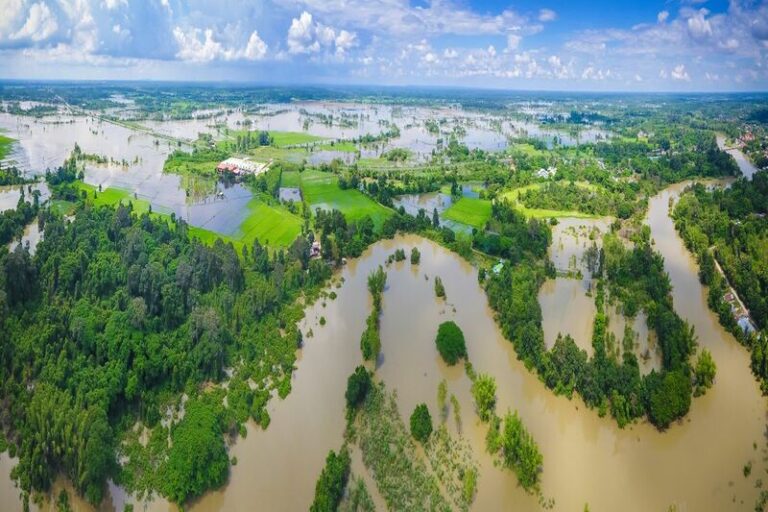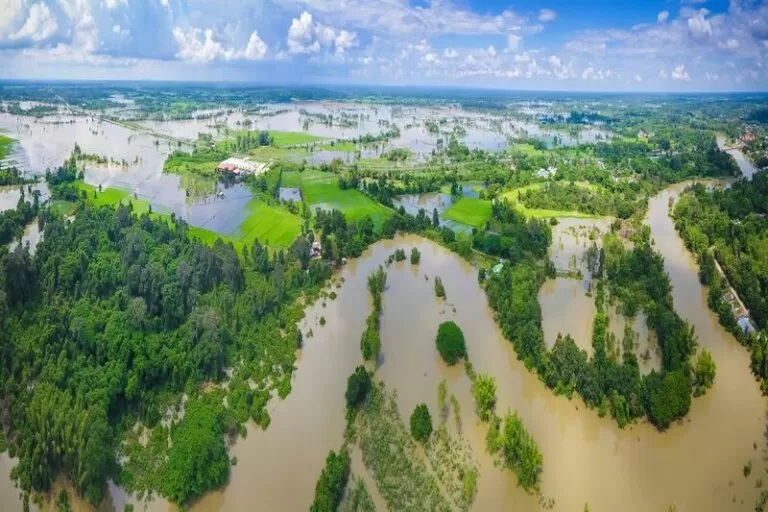

Businesses in Africa were affected by floods over the last year
According to a recent study, 23% of African firms were impacted by drought over the past year, and 39% by floods.
The British International Investment’s Emerging Economies Climate Report 2022 noted that drought and water stress were the most significant in terms of worries about the physical hazards to African companies.
A wide range of enterprises was harmed by flooding, including banks, real estate organisations, agricultural businesses, and electric utility companies. The study included senior executives who understand how climate change would affect enterprises across a portfolio of African companies and funds.
According to studies, Africa, which has the lowest contribution to climate change, is one of the regions most susceptible to its effects.
In actuality, all 10 of the world’s most climate-vulnerable nations are in Africa. These countries are Uganda, Niger, Somalia, Guinea-Bissau, Sudan, Liberia, Mali, and the Democratic Republic of the Congo.
The second most frequently recorded physical climatic occurrence was drought, which had the greatest impact on agricultural businesses. Drought significantly impacted the portfolio firms of Zebu Investments, a company that invests in the food and agriculture sector across Africa.
According to the analysts, it had an impact on a company it invests in’s ability to produce maize in central Africa, and water constraints at a pig farm damaged crops used as a source of food.
Up to 82% of respondents believed that climate change would have an effect on their company’s ability to grow, while 21% said that it would have a significant effect.
It was shown that respondents from African nations were more concerned about the issue than their Asian counterparts. According to the research, 58 per cent of respondents in Africa and 54 per cent of respondents in Asia said that climate change could affect the viability of their organisation.
The survey also showed how their capital expenditure choices had been impacted by climate change. According to the experts, “These organisations are choosing capital investments to increase resilience to physical climate change disasters, as well as assisting to transition to a low-carbon economy.”
Zebu Investments and Sahel Capital, two of the agricultural companies surveyed in Africa, had invested in capital projects to adapt to climate change.
According to the report, Zebu Investments constructed two dams to enable them to irrigate crops in order to offset decreasing maize harvests brought on by the intensifying drought in Cameroon.
To prepare for climate risk, Sahel Capital, a fund manager with operations in sub-Saharan Africa, made an investment in a flood defence system.
The poll found that the respondents desired more assistance in addressing the problems caused by the changing environment.
The respondents concurred that more effective investment is required to support emerging economies’ businesses in enhancing their resilience to physical climate change and making the transition to a low-carbon economy.
MultiChoice and NBCUniversal have given $145 million to support Showmax Africa. This money will help with running the business and…
The ongoing search for Free State police officers in Centurion resulted in the discovery of five dead bodies found in…
The Sistine Chapel will welcome Cardinal members in the forthcoming week to start electing succession candidates on May 7 for…
Namibia’s President, Netumbo Nandi-Ndaitwah, has removed Agriculture Minister Mac-Albert Hengari from his position. The decision came after serious allegations of…
Manchester United manager Ruben Amorim has confirmed that defender Diogo Dalot might miss the rest of the season due to…
Tanzanian President Samia Suluhu Hassan has praised Simba SC after the team made history by reaching the final of the…
This website uses cookies.